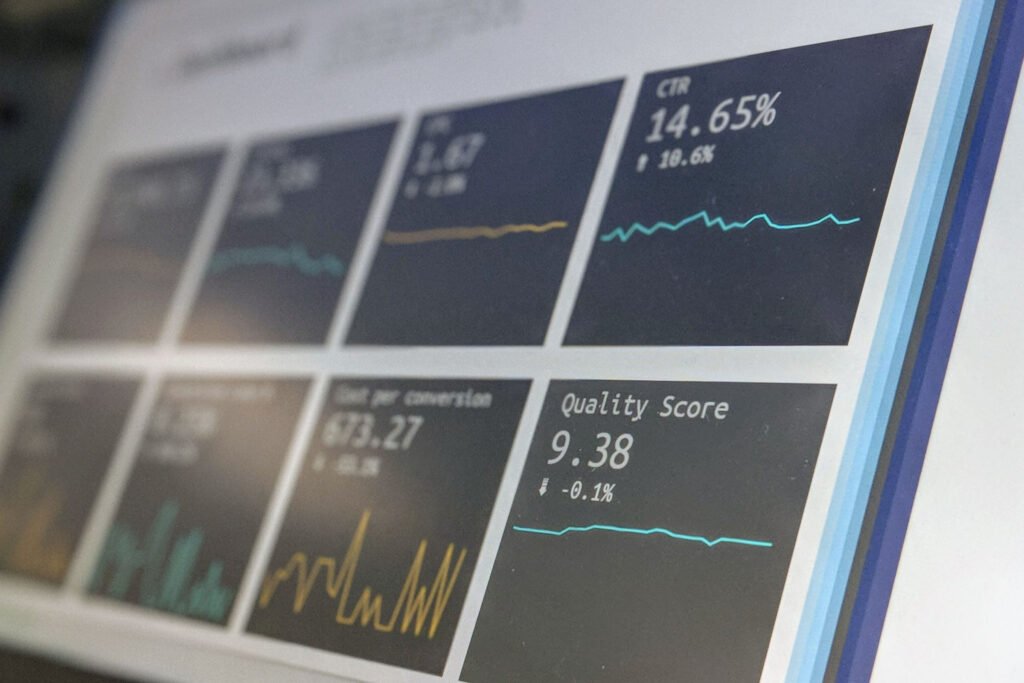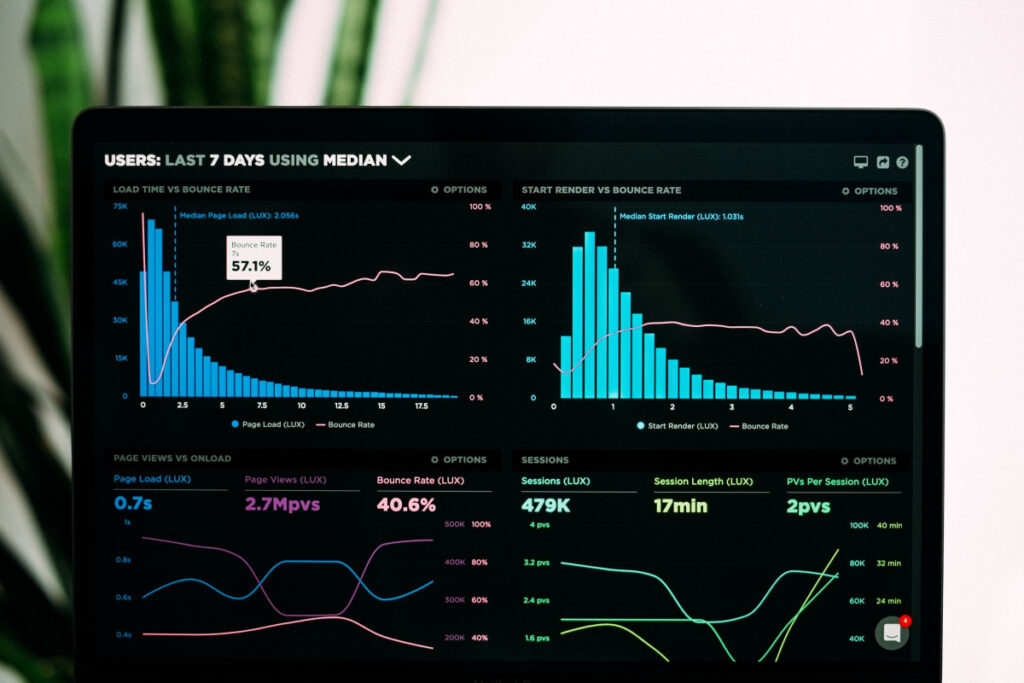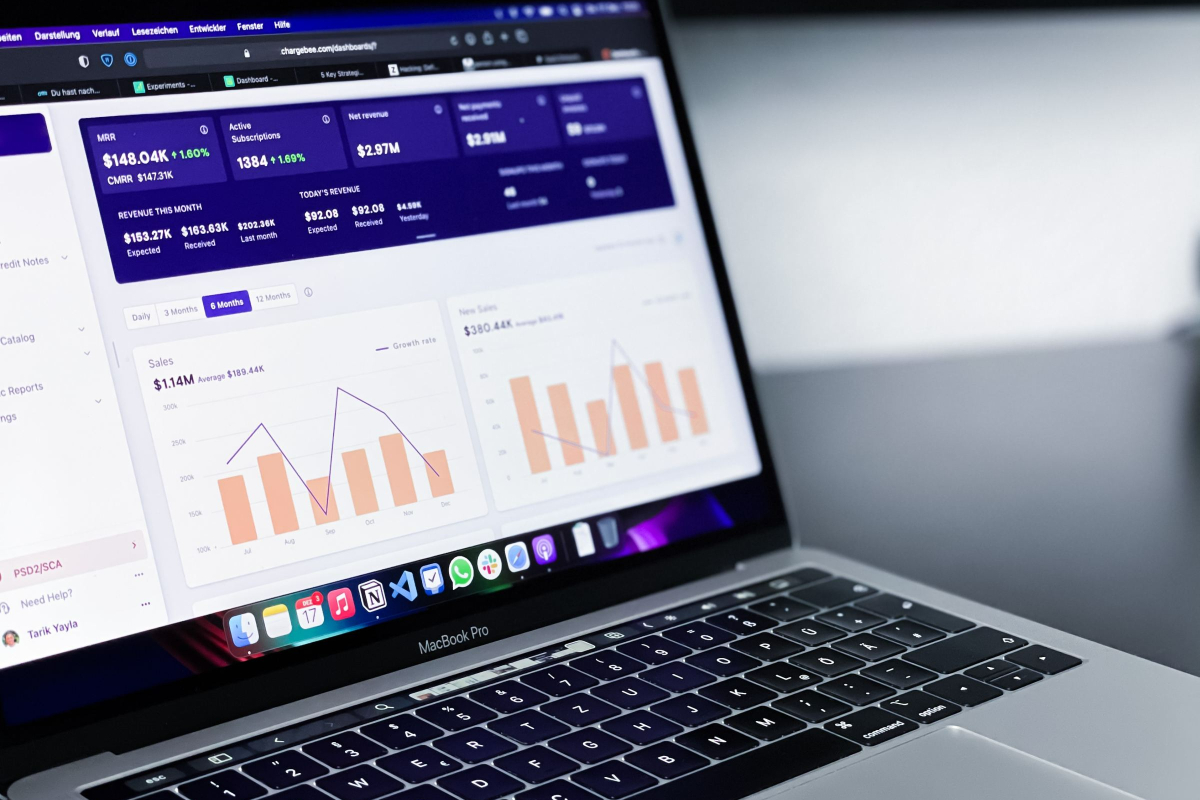
Table of contents
Software as a Service (SaaS) business leaders understand that data is the lifeblood of all their operations and that how they use it determines how successful they are. SaaS analytics and reporting tools make important data readily available when needed, and these insights can be especially critical.
Having relevant data and the appropriate tools in place can help speed up an organization’s decision-making process, saving time and increasing revenue.
SaaS companies use analytics to help businesses scrutinize their interactions, improve customer engagement, reduce churn, and organically increase revenue.
In the past, companies were dependent upon tools like Excel spreadsheets for their data analytics, and although the tools themselves were effective, they have shortcomings.
For example, when data needs to be input manually the final result is prone to errors. Due to the enormous amount of data that big companies have to process daily, access to real-time analysis is nearly impossible.
Many businesses review their key performance indicators (KPI) less frequently than they might like, some are as infrequent as quarterly. Unfortunately, three months has always been too much time for something critical to go unnoticed, especially for SaaS businesses. With SaaS reporting software, up-to-date data is now available whenever needed.
Companies big and small can leverage the power of data to improve their standing. However, data of low quality or has significant gaps can lead to these downsides:
- Lower revenue/profits
- Inaccurate prioritization of objectives and goals
- Poor efficiency
- Unoptimized processes
- Inattention that leads to considerable loss
These concerns are why so many SaaS organizations are making the move towards data-driven decisions. With the right understanding of the importance of SaaS analytics and reporting software you can take your business to new heights.
What Are the Main Benefits of Utilizing an SaaS Analytics Reporting Tool?
No matter the industry, every organization can make use of gathered data. The more information you have about your customers, your competitors, and the inner workings of your company, the better and more accurate decisions you can make.
Let’s face it, growing a business is extremely difficult. That’s why you need to take advantage of all of the resources you have at your disposal. As a business owner, using a SaaS reporting tool along with robust financial planning software can make a fundamental difference in the following ways:
Enables You to Set Realistic Goals
The SaaS data report gives you a clear picture of your business and where it can be within a defined period of time. Instead of making guesses, people leading the company can make logical and accurate projections.
Keeps You Informed with Up-to-date Information
SaaS reporting tools help you keep track of your business in real-time (or near real-time). This oversight wasn’t possible in the past. Proper SaaS analytics provide valuable information to guide marketing campaigns and lead generation activities.
Helps You Identify and Measure Progress
Modern SaaS analytics solutions provide clarity about market data. Only the most solid financial planning software and sales compensation planning software suites leverage these analytics. With the different KPIs in each report, company leadership gets a clear view of what is going on in various parts of the business.
Provides Guidance for Future Product Development
Instead of overthinking ideas for new products, companies can easily refer to previous data to find out what worked in the past and leverage that understanding for new product development. This analysis allows you to optimize your service for a better customer experience as you keep an eye on the data.
However, the upsides listed above aren’t the only benefits you gain when implementing a strong SaaS analytics and reporting program in your organization.
As Matt Gavin from the Harvard Business School points out, you also will also:
- See increased revenue
- Improve operational efficiency
- Make more timely and informed decisions
Using the right metrics can help you to streamline solutions for issues that your business and your customers face. This leads to greater customer satisfaction, improved brand recognition, and less money wasted on recurrent issues down the line.
Now that we’ve covered why you need SaaS analytics and reporting for your business, let’s explore the critical features you should look for when choosing a SaaS reporting solution for your organization.
Critical Features of SaaS Analytics Reporting Solutions
So far, we have explored the importance of SaaS reporting analytics and how they can be a gamechanger for any company that understands how to use them. Below are some crucial features that every reliable SaaS vendor must incorporate into their product.
If these aren’t included, find a better vendor to go with. To be competitive, look for SaaS solutions that incorporate and use the latest technologies, such as artificial intelligence (AI) and machine learning (ML).
These powerful tools can take a lot of guesswork out of data analysis and recognize trends that human eyes might miss.
Designed to Drive Business Change and Improvements
SaaS reporting tools give a thorough overview of the various aspects of any business that might have evaded management’s attention. Although SaaS solutions are not new, the emergence of SaaS solution providers has taken analysis work off the shoulders of the management teams in businesses that use SaaS analytics.
Leaders who seek to optimize their operations depend on SaaS analytics to guide their decision-making. By using the information provided by their SaaS-generated reports in the right way, businesses can experience dramatic improvements and increased overall growth.
Deep analytics aid important decisions like how to build a more robust client retention strategy, how to monitor the sales funnel, and how to reduce churn.
Given the importance of accurate data for sound business decisions, SaaS solution providers must ensure that the accuracy of their tools is without question. Furthermore, how results of analysis are presented is often as important as the decisions that need to be made.
To be worth the cost involved, the solutions provided by a SaaS company must include augmented analysis of KPIs in a manner that’s easy to understand.
Automates Repetitive Data Pulling and Saves Time
SaaS analysis software should automatically pull data from websites and databases, run analytics, and present the final result in a usable form.
Companies depend on SaaS solutions to help them handle many repetitive tasks and automate their processes.
For example, a digital marketing company will depend on real-time results from SaaS reports to get the correct metrics for their campaigns and make adjustments when the need arises.
Similarly, after studying their KPIs, a manufacturing company might decide to produce more of a product that is selling fast and cut down the production or rebrand another.
Such data would traditionally take several hours to dig up using Excel spreadsheets in the past.
Using a Saas financial model just makes sense. Unlike human workers, automated SaaS reports aren’t prone to error and do not get tired. This reliability means you will keep getting correct results as long as you are using a reliable SaaS reporting solution.
SaaS solutions enable your business to see different metrics on a single SaaS dashboard and extract data automatically, thereby helping the organization to save time and better manage its resources.
Provides Actionable Information

It is one thing to have the correct data available when needed; it’s another to know what to do with the data in your possession!
Effective SaaS reporting software and tools are typically designed to provide reports that are actionable. Actionable reporting involves the suggestion of steps that the company could take with the data that has been provided.
Business leaders understand the importance of data and how certain KPIs are necessary for evaluating their growth. However, providing raw information isn’t enough; actionable reporting is what organizations need to truly scale and grow.
An organization’s decision-makers need actionable reports to inspire them to create new solutions or diversify into new territories. Digital marketing firms, for example, require actionable data to show the campaigns that are converting best, so they can focus more attention on those strategies.
Flexible and Customizable
SaaS reporting services should be flexible and customizable to fit the needs of each business. Companies may decide to change their policies or business model, and the SaaS solution they use shouldn’t stand in the way of achieving that goal.
The need for customization becomes necessary as each company has a unique way they intend to use their SaaS reporting tools.
Most SaaS tools have widgets that can easily be customized to the specifics of individual organizations. Depending on the needs of the company, a fully custom-made SaaS solution can also be designed to offer optimal performance.
SaaS vendors allow multiple members of the organization to collaborate on the same module at the same time, thereby increasing the overall productivity and efficiency of the team.
IT teams depend on some functionalities of SaaS solutions to get their tasks complete, while executives use the data and reports from the SaaS solution provider for their decision-making. In short, every member of the team can use SaaS analytics to function more effectively.
Allows You To Make Smarter Decisions Faster
Smart businesses have mastered the use of data to help speed up their decision-making process. In the past, a lot of time had to be invested in gathering the data required for these types of insights. However, with the help of that data, a detailed analysis would tell the organization what steps to take next.
SaaS reporting software provides important data immediately to help the company with data-driven decision making (DDDM) rather than using rudimentary methods like addressing quarterly KPIs.
An SaaS analytics solution that utilizes AI and ML will help push your DDDM to the next level. These algorithms can crunch thousands of data points and draw connections that would otherwise be missed.
Final Thoughts
The use of SaaS reporting analytics solutions has become widely popular around the globe, and the reason is not hard to understand. Companies can now access essential market data to help drive their decision-making in a way that wasn’t possible before.
The days of companies scheduling their market analysis quarterly or monthly are now over. New tools allow leaders to check any data of interest at any time of the day.
As with most technical tools, there are a lot of providers that offer SaaS analytics solutions. However, there are some key features that users ought to look out for before opting for SaaS solutions — the ones that we have addressed above.
However, it can still be difficult to find the right solution for your business. Need help uncovering those hidden opportunities and areas for growth within your organization? Contact us today and set up a demo!
FAQs
Here are some frequently asked questions about SaaS analytics and reporting.

Absolutely! Most SaaS apps make use of Google Analytics as their central analytics platform. Google Analytics is one of the easiest, most useful, and most flexible tools a business can use to get a great overview of the company’s status.
Using Google Analytics for SaaS analysis gives you plenty of valuable data points for your website.
SaaS metrics are vital benchmarks that give a clear picture of the growth rate of a company. Businesses can use this information to gauge their success to date and make future plans to continue that growth while increasing economic stability.
Key performance indicators (KPIs) for SaaS are essential metrics that help businesses measure their performance against predetermined benchmarks.
Important KPIs include churn rate, cash flow, customer acquisition cost (CAC), and many others. KPIs are perfect for helping companies set goals and milestones while giving unique insights into complex situations.
SaaS success can be measured and quantified by using KPIs. Some of the key performance indicators that can be used to measure SaaS success include:
– Onboarding rate
– Churn rate
– Sessions per day
– Customer acquisition costs
– Customer retention cost
– Customer lifetime value
– Revenue forecast models
– Net promoter score